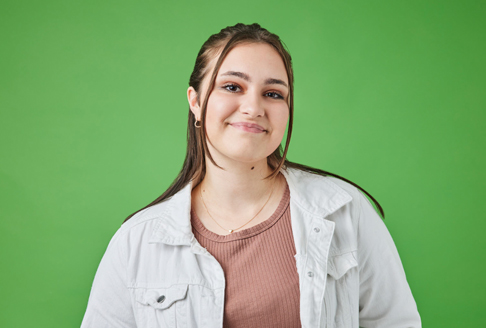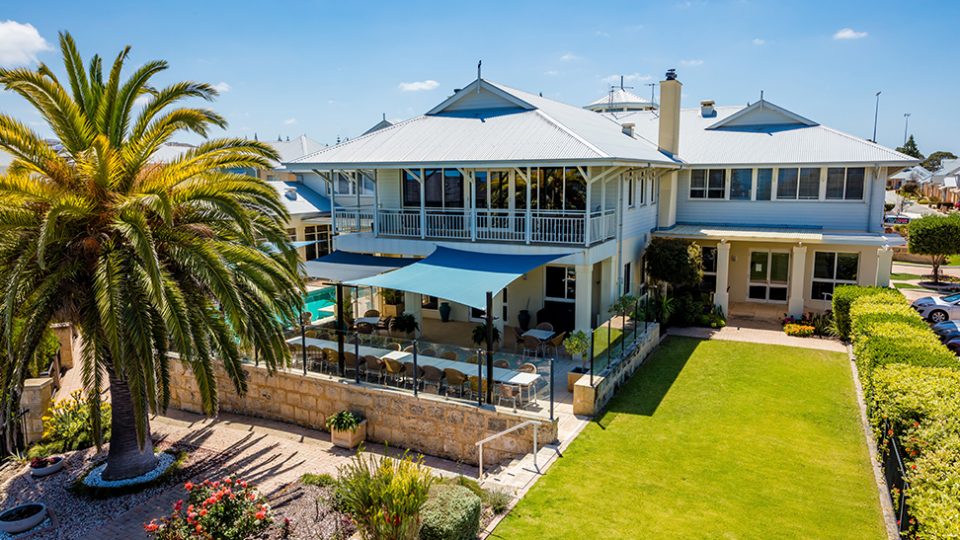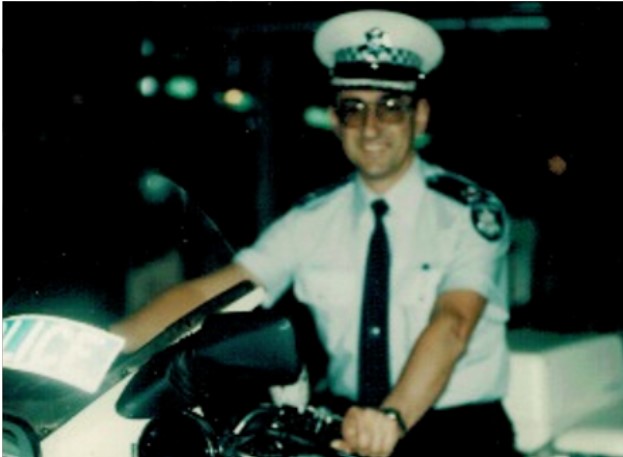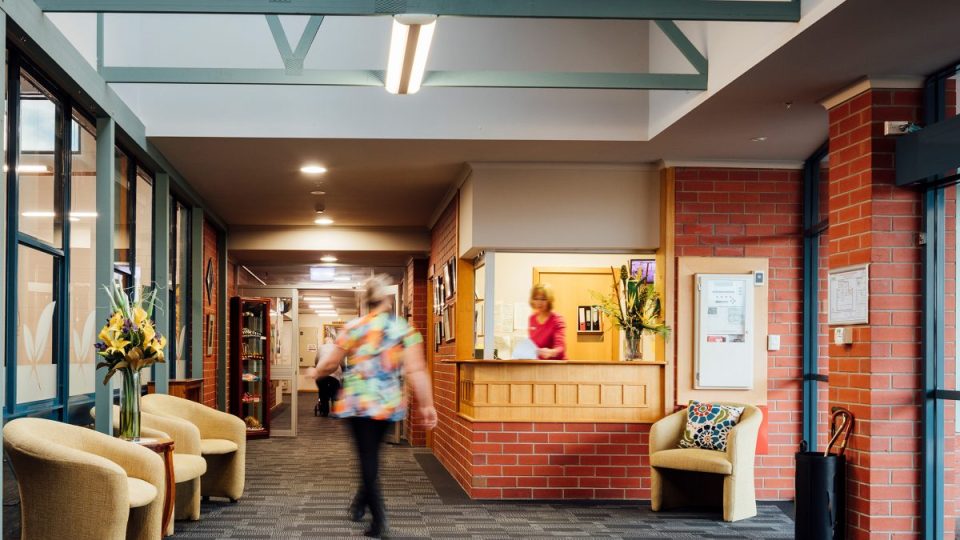Gemma’s experience as a Foster Care Sibling
- 12 Sep 2023

Meet 18-year-old Gemma, daughter of foster carers Bernadette and Jason. Gemma is a talented artist who hopes to do further study in Fine Arts and Industrial Design. She has surprised herself by loving the foster caring journey too.
What was your first reaction to hearing that your family was going to foster children?
Originally, I didn’t think that the fostering would really involve me. I was excited when I realised that I was going to be a part of it too.
How have you found the fostering experience?
I really love it! It has also been really good for our family. It seems that kids like coming to us too. One foster care child recently said that they enjoyed being around our family because we were lots of fun.
Sometimes we encourage the child to plan the day. For example, recently one of our visitors planned a visit to an arcade and then dinner at his favourite restaurant. He really enjoyed it, and we learnt a little about his culture too.
What do you enjoy about being in a fostering family?
I enjoy getting to know the kids on a more personal level, looking after them and just hanging out with them doing stuff.
The kids start to feel a bit like a sibling to me. I do get attached to them and it can be hard to see them go.
And they can surprise you too. One child recently went shopping with us and went and bought chocolates as a gift for our family. I thought this was really touching.
What have been some of the challenges?
Probably the need to balance my life and personal space.
I’m currently doing my VCE, so I need to balance the workload out. I’ve had to explain to some foster kids that I can’t hang out all the time, that I’ve got schoolwork to do as well. Some of them are really sweet and offer to help me.
What are some of the good things?
There’s lots of life lessons involved in fostering – both for the kids and for me!
I’m conscious that I have a role to play in the fostering experience and some responsibilities too.
I hope some kids see me as a role model, particularly the girls who visit.
I find it unusual because I’m not used to being a role model – but it feels good.
I know that the male foster kids look up to my younger brother as a sort of role model – a big brother of sorts. He pretends that he doesn’t like it, but I know he does.
What did you expect it would be like and how did your expectations measure up to the actual experience?
I didn’t really have any expectations. I was pretty relaxed about it all and didn’t overthink it. I thought of it as just gaining some more younger siblings for a while.
What has surprised you about being in a foster carer family?
I was surprised to get so attached and close to the foster kids. I didn’t expect this. But when you start to hang out with them you just naturally get close to them. It surprised me how much I genuinely wanted to get to know them.
You realise some kids are doing it tough. Some kids have had multiple placements. It made me realise that we’re doing something good for them and this feels good. Now that I’ve been involved in a foster care family, I’ve realised that I want to keep fostering in my life in the future.
What have you learnt about yourself from the fostering experience?
I think that I’ve surprised Mum and Dad a lot by the way I’ve got involved in our foster caring. I’ve been a lot more open, empathetic and engaged with the kids than they expected.
I feel like I’ve grown in confidence a lot more since being involved in foster caring too. The first time I talked with the Foster Care team I was really nervous and a bit unsure. Now I’m not.
What qualities do you think you need to cope well with being a foster sibling?
You probably need to be empathetic, a good listener and just active. The kids like activities and it helps us all bond too.
What have you gained from the experience personally?
I’ve realised that I really like talking and listening to the kids who stay with our family. I’ve found that some kids struggle emotionally and don’t really know how to express themselves. But if you ask them questions and really listen, they do open up.
Any advice for other families/foster siblings thinking of becoming foster carers?
I would tell them to just have a go! I would suggest that they get really engaged with the children and get to know them on a personal level, as it really helps you to understand their behaviour.
Any tips on how to connect with foster siblings?
I would suggest lots of talking, listening and going out and about doing activities that the children are into. This really helps with the bonding.
I recently did some art therapy with one of our foster kids. I asked her to draw things that she liked and she drew a picture of her biological family. It really touched a chord with me.
Another child drew a picture of me and I promised them I would put it in my VCE folio and I did!
Do you think foster caring is important in society?
Definitely! There are lots of kids out there who don’t have the support and care that they need. Giving kids the opportunity to stay with people until they can go back to their families is really important.
That’s what every kid wants – just to feel loved and appreciated.
I feel so privileged growing up in a loving, safe environment.
These kids deserve to feel what I feel – loved, appreciated and safe.
If you’re interested in joining Gemma and her family as part of Baptcare’s foster care community, please call the Foster Care team and have a chat on 0409 591 895.
Community news
-

BaptistCare to acquire Keyton’s Western Australian retirement village portfolio
BaptistCare is pleased to announce that we have entered into an agreement to acquire Keyton’s portfolio of retirement villages in WA.
- 13 Nov 2025
-

Spotlight on Residents: Reg Baker
At Baptcare, we are always delighted to learn more about our residents’ lives. They are often filled with excitement, joy, and adventure, and it truly reminds us how rich a person’s life is—and continues to be—when they join one of our residential aged care communities. Today, we are honoured to share the remarkable story of one of our residents, Reg Baker, who lives at Baptcare Peninsula View Residential Aged Care community.
- 10 Nov 2025
-

Staff spotlight | Leonie Irvine – 35 years of service in aged care
Leonie is one of our dedicated Lifestyle Assistants at Karingal Residential Aged Care community in Devonport, Tasmania. She recently celebrated an incredible milestone - 35 years of continuous service at Baptcare. In a sector where long-term service is increasingly rare, Leonie’s 35-year journey stands out as something truly special.
- 10 Nov 2025
